Protein is something the majority of us have heard about before.
And while we may have some idea of what it is, a lot of us may not truly understand the number of incredible roles it plays in our body.
So whether you’re a mum or dad, a bodybuilder or a grandparent, you’ll soon find out that protein truly does have plenty to offer!
"So while some may only associate protein with muscles and body building, protein in fact, provides a wide range of benefits."
Protein is essential for growth and development in children and adolescents
Children and adolescents undergo significant growth and development. Among other nutrients, their growth is dependent on getting adequate dietary protein – this is because protein acts as a building block for body tissues, including muscles and bone. After we eat or drink something that contains protein, our body starts to break it down into smaller units called peptides and amino acids, which we absorb into our blood stream and use in our body. There are around 20 different amino acids which, once absorbed, form or replace parts of our body tissues. In fact, without protein, we would have little structure or function to our bodies.
A severe protein deficiency can lead to muscle loss and poor growth in childhood and adolescence. Fortunately in New Zealand, our children and young people have sufficient protein intakes, and severe deficiencies are fairly uncommon.
Protein helps build and maintain muscles
While muscle growth and maintenance may be the most well-known benefit that protein can offer – a lot of people think this particular role may only be relevant to bodybuilders and gym enthusiasts. However, strong muscles are important for all age groups – from helping to ensure busy kids can stay active, right through to helping older generations stay mobile, fit and independent. Maintaining healthy muscles is also an important part of having a healthy body composition. Our bodies build muscles from amino acids – so when combined with exercise such as weight training, protein can help us to increase and maintain muscle mass.
Muscle maintenance is particularly important as you get older, with sarcopenia (a loss of muscle mass and function) being a common feature of ageing. The main effect of muscle loss is a reduction in muscle strength which can lead to a reduction in physical function, as well as impaired mobility and balance. Because of this, and because older bodies may be less efficient at using dietary protein, minimum protein requirements for people aged over 70 years are higher than they are for younger adults. Unfortunately, older populations don’t always get enough protein to maintain optimal health. Dairy is a convenient, high quality protein source that can help to ensure intakes are sufficient.
Protein helps with tissue and wound repair
Protein is present in every body tissue – and this includes your skin, so it makes sense that protein plays a role in wound repairs. Again, this is something relevant to all age groups, from being important in the repair of a graze on your little one’s knee, to healing cuts and wounds that become more common as we age and our skin becomes more fragile. In fact, an adequate protein intake in older people is associated with less skin fragility and better wound healing.
So while some may only associate protein with muscles and body building, protein in fact, provides a wide range of benefits including helping to build muscles, repair tissues and supporting kids’ growth & development.
Protein helps increase feelings of fullness
In addition to the functional qualities protein provides in our bodies, it has been shown that increasing your protein intake helps increase feelings of fullness or decrease feelings of hunger. Kiwi’s typically eat most of their protein in their evening meal. However, if you find you are struggling to make it through the day between meals, protein could be the answer. Incorporating more protein in your main meals or having a protein-rich snack between meals, may help you to feel satisfied without consuming large quantities of food. Below are a few tasty ways to incorporate more protein into meals that are often carbohydrate-dense:
| Protein content | Alternatives | Protein content | ||
| Breakfast | 2x wholegrain toast with jam | 8g | 2x wholegrain toast with scrambled eggs made with Anchor Protein + milk | 15.6g |
| Lunch | Ham salad sandwich | 13.6g | Chicken salad sandwich with hummus and cheese | 29.4g |
| Snacks | Rice crackers Apple Banana |
0.8g 0.4g 1.1g |
Anchor Protein + yoghurt Anchor Protein + cheese with wholegrain crackers Vege sticks with hummus Cashew nuts (10) |
14g
3.9g
2.1g
2.1g |


